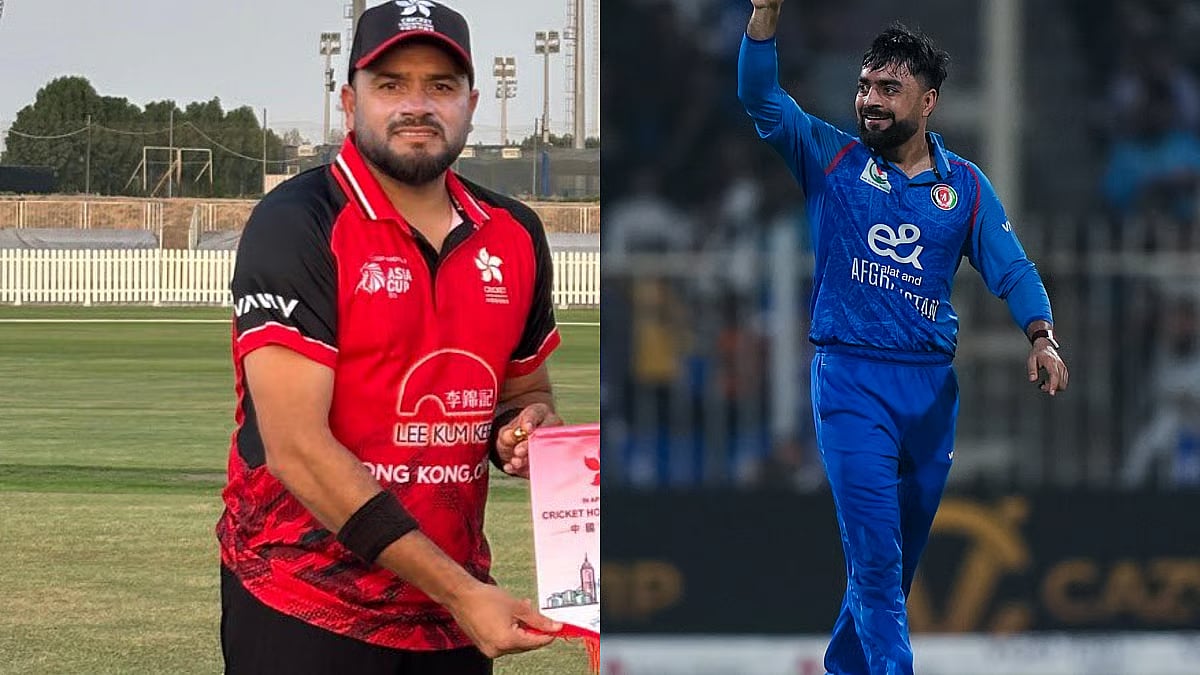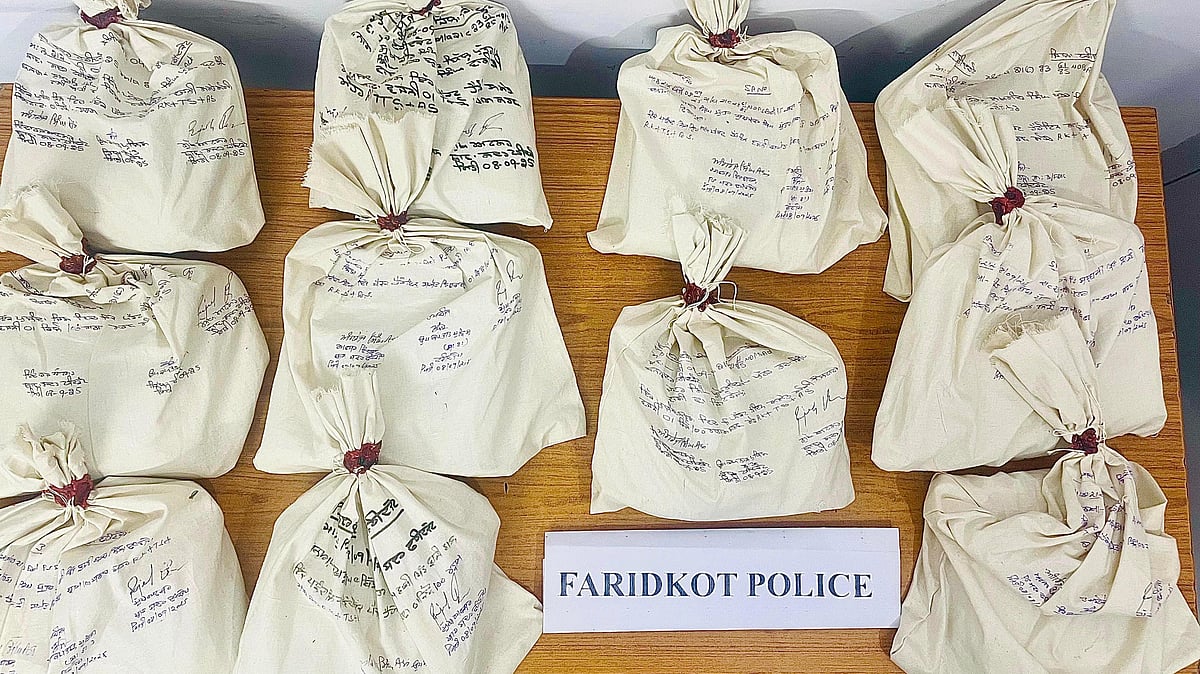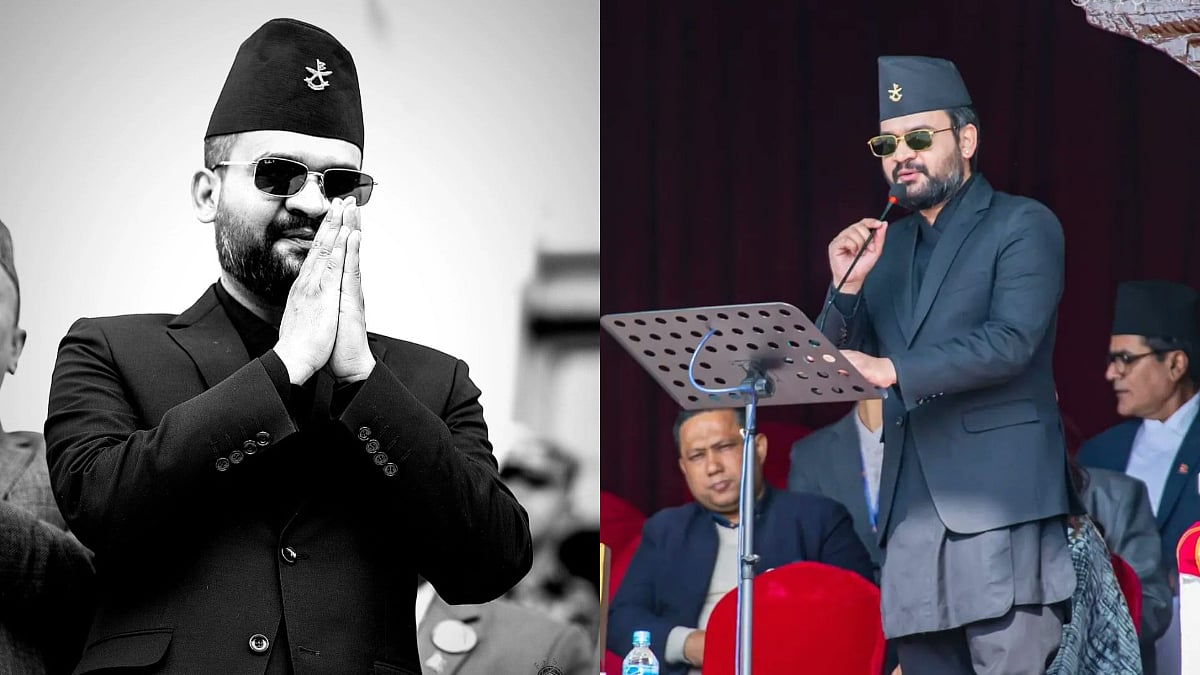This is truly India’s time. On-going economic adjustments in the world give us a brilliant opportunity to lead global growth. This is how outsiders see it and also how we see it,” asserted Krish Iyer, Chairman, India Retail Forum (IRF) 2015 and President and CEO, Walmart India, as he welcomed delegates and dignitaries to IRF 2015.
“Ours being a consumption-driven economy as against an export-driven economy has come in handy for the retail sector. The focus on manufacturing is laudable but the future of growth is in services, driven by technology and 300 million new Internet users as majority of sales in brick-and-mortar are digitally influenced,” stated Iyer, as he threw open the two-day (September 15-16) annual forum organized at Renaissance Hotel & Convention Centre, Powai, by IMAGES Group.
This year’s edition followed the theme “Capturing the new PhyGital scenario” and like always, saw a heady mix of panel discussions, round tables and presentations well attended by business and technology leaders, policy makers and academia.
Setting the tone of the event, Abheek Singhi, Senior Partner and Director, Asia Pacific Leader – Consumer and Retail Practice, Boston Consulting Group (BCG), noted how online and e-commerce with varying digital density along with Omni-channel were straining traditional retail, coupled with value chains being disrupted owing to consumer companies selling directly through offline and online tools. Given that the Indian retail market was the most complex one in the world, those who cracked the code here would succeed anywhere across the globe; he said.
“EBITDA margins of Indian retailers have dropped to 2% in 2014 from 8% in 2011. Whereas, EBITDA margins of select international retail chains like Walmart, Target, Tesco and Home Depot have maintained 7-11% during the same period,” observed Anurag Mathur, Retail & Consumer Goods Practice leader, PricewaterhouseCoopers (PwC) India. In a presentation on the evolving Indian retail-scape and associated complexities, Mathur outlined emerging trends and the need to build distinct paths to sustainable profitability and growth. Creating differentiation, improving overall value proposition, understanding and connecting with consumers, offering a seamless consumer experience across multiple channels and investing in analytics and technology were among the strategies retailers needed to adopt to be profitability-ready in the digital era.
Sanjiv Gupta, Chairman & Managing Director, GETIT Infoservices – Askme.com and Askmebazaar.com led the presentation which attempted a peak at consumer behaviour over the next couple of years. “With 700 million people connected to mobile by 2018-19, the future of shopping is mobile,” said Gupta. He went on to elucidate what consumers would look for in online shopping, how they would use mobile, and whether making applications (apps) and introducing cool new features would be the only way forward. The picture that came to mind was of nameless, faceless consumers demanding newer categories of products online, also paying for them online, even as retailers continued to woo them with intelligent, experiential features and last-mile connect.
Srinivas Rao, General Manager and Director, Amazon India Payments, pointed out that currently, 10% of online buyers were dropping out due to lengthy check-flow while 29% were dropping out due to mandatory registration processes, leading to lower payment conversion rates. However, rising Internet connections, coupled with increased smart phone penetration, were expected to boost the mobile shopping e-commerce segment by 150% CAGR by 2016, after having grown by 800% over the previous year in 2013. Rao listed both buyer pain points and merchant pain points while going through the gamut of future payment offerings like m-POS, in-app billing, NFC, digital wallets, RuPay adoption and recurring payments plus their implications for retailers and consumers.
A more intimate session was held at The Speakers’ Lounge chaired by Vineeth Purushotaman, CIO, Bharti Retail, with Pural Koul, Director – COE & Solutions Advisory, SAP as lead speaker and moderator. The gathering threw up interesting examples from industries as diverse as jewellery, beauty, toys and energy drinks where brands had rediscovered themselves online. For instance, 21 Diamonds had managed to take a personalized category like jewellery to the Internet and scripted a success story at that. Similarly, another brand had managed to take salon-style hair care to tier 2 and tier 3 cities across the country through an online platform which served as bridge between renowned hair stylists and aspiring clients. What’s more, people could upload their photographs on the website to know what hair style suited them on special occasions and otherwise. A participant observed, “Digital is not e-commerce. Digital is a far bigger phenomenon than e-commerce. Today however, e-commerce is driving the digital world rather than the other way round.”
An interactive and engaging conversation ensued at The Speakers’ Lounge chaired by Arun Gupta, Founder, Ingenium Advisory with Debjyoti Paul, Head, Digital Business, Mindtree as lead speaker and moderator. The speakers included Arjun Basu, Co-founder, Mydala.com; Vivek Gaur, Co-founder, YepMe.com; Hrishikesh Pore, former Head – Grocery Online, My247market.com and Sai Sudershan, COO, Omved to name a few. The following thoughts were shared:
The opening panel of IRF 2015 focused on the present retail scenario and how industry needed to align itself to the Omni-channel climate, embrace innovation and technology, adapt to expectations of new-age consumers, and lead this era of transformation during the challenges that lay ahead. Moderated by B.S. Nagesh, Founder, TRRAIN, the discussion drew participants such as Krish Iyer, Chairman, India Retail Forum (IRF) 2015 and President and CEO, Walmart India; Rakesh Biyani, Joint MD, Future Retail; Alok Goel, MD, SAIF Partners; Radhika Ghai Aggarwal, Co-founder, Shopclues.com and Vishal Mehta, Founder & CEO, Infibeam.com.
Panel members shared anecdotes and learnings from their storied careers. For instance, Radhika Aggarwal of Shopclues.com observed that in the past four years, channels of consumption had changed and there was a marked increase in mobile customers, with weekends and commute hours having taken on a new life of their own. Whereas, Rakesh Biyani of Future Retail opined that more and more consumers across Indian cities desired a touch-and-feel shopping experience. Krish Iyer of Walmart India said that online retail would definitely catch on but offline retail would not disappear. Vishal Mehta of Infibeam.com expressed hope that the two retail formats would converge in future. It was however felt that brick and mortar would have to become more nimble by improving ease and speed of doing business to maintain the profitability edge.
Moderated by Abhishek Ganguly, MD, Puma India, the panel comprised Marvin Bernstein, Managing Partner and Global CEO, Skechers Inc., USA; Alok Tandon, CEO, Inox Leisure; Brendan Dorrian, Head of Retail, Fawaz A. Alhokair & Co.; Javier Sotomayor, MD, Cinepolis India; John Schreiner, Global Vice President, IMAX; Sriram Khattar, CEO – Rentco, DLF and Venu Nair, MD, Marks and Spencer. Participants shared perspectives on how to build and strengthen brands while looking out for digital-savvy consumers and their price-value aspirations as also the business’ top- and bottom- line. Alok Tandon of Inox Leisure said that the world of cinema had changed and technology had become an enabler to showcase products in a better way but to keep their consumers coming back for more, they had positioned Inox as “money for value” instead of “value for money”. For Javier Sotomayor of Cinepolis India, brands were what consumers perceived them to be which is why consistency of message and tone across various touch points was important. Despite the availability of multiple screens, people with an appetite for cinema would continue to opt for theatres which gave them that window of exclusivity. Venu Nair of Marks and Spencer explained how increasing fashion awareness within the country had put pressure on them to launch collections in India at the same time as the rest of the world, refresh their merchandise more often and ever so slightly skew their portfolios to suit age, colour and regional preferences. The panel felt that reaching out to consumers in different ways was critical to building brands in this day and age.
Building upon the presentation by panellist Srinivas Rao, General Manager and Director, Amazon India Payments, the session, moderated by Yatin Singh, Associate Director – Investment Banking, Motilal Oswal Investment Advisors, saw participation from Hrishikesh Pore, former Head – Grocery Online, My247market.com; Manav Sethi, Group CMO & Head Digital, Askmebazaar.com; Philippe Nobile, Director and MD – France, Javelin Group; Sandeep Singh, CEO, FreeCultr.com and Vivek Gaur, Co-founder, YepMe.com.
Yatin Singh of Motilal Oswal Investment Advisors stated, “Online transactions will be enabled by payment service providers and gateway companies that will grow proportionately to the growth of the Internet industry in India. Digital payment for e-commerce will outpace growth in the e-commerce industry as the proportion of cash on delivery payments reduces over time.” Singh quoted from a Motilal Oswal report saying, “Digitized consumer payment flows in India stood at 24% compared to over 50% across other major economies. An estimated 7% were by way of cheques and 69% in cash. Consumer or retail payments were at 14% of overall payment flows and digitization of consumer payments in India was a large business opportunity.” The overall perception was that while newer modes of payment presented a unique opportunity for retailers, the latter needed to approach the same with caution.
The panel comprised Atul Ahuja, Vice President – Retail, Apollo Pharmacy; Gopalakrishnan Sankar, CEO, Reliance Footprint; Pankaj Renjhen, MD, Retail Services, JLL; Yashovardhan Gupta, Director & CEO, CROSS (Exclusive Global Licensee – Torero Corporation) and Zubin Cooper, CEO, Bentel Associates and was moderated by Himanshu Chakrawarti, CEO, Hi-Care Services and formerly CEO, The Mobile Store.
With reportedly 1.087 billion people having travelled internationally in 2013, spending $1159 billion, travel retail had been aptly named the “sixth continent”. With Delhi Airport having recently been acclaimed as the “world’s best airport”, panel members perceived the biggest opportunity and scope for retail along airport transit systems followed by upcoming railway transit systems (Metro and Indian railways). Pankaj Renjhen of JLL gave the example of Broadway Station in London and said that internationally, stations had become the epicentre of frenetic activity whereas India was lagging behind in that respect. Yashovardhan Gupta of CROSS proposed roping in operators, especially for rail and road, who would offer a wide range of services, at a cost, making it unnecessary for business to directly engage with each and every bus stop and railway station in the country. Zubin Cooper of Bentel Associates stressed on “sophisticated infrastructure and safe travel for commuters along with mixed-use, diverse areas where people could come together and form communities”. All in all, travel retail was seen as an under-explored opportunity waiting to be tapped in bigger ways.
Bijou Kurien, Member, Strategic Advisory Board and Mentor, L Capital Asia (LVMH Group), and moderator of the panel, stated, “There is some stress in private equity generating returns due to rapidly depreciating rupee along with competition leading to higher valuations.” He added that India had seen $103 billion private equity investment from 2000 to 2014, of which 50% was corporate with an annual turnover exceeding $125 million. This year, approximately $12 billion would be invested in private equity. However, returns from private equity had dropped from 40-50% in 2005-08 to 10% in the past two years while the holding period had risen to 6 years from 3 years in 2005-08. Kurien set the stage for the session that drew participants like Alok Goel, MD, SAIF Partners; Atul Goel, Director, E-City Ventures; Bharat Banka, Founder and Ex-CEO, Aditya Birla Private Equity; Darpan Sanghvi, Founder, MyGlamm.com; K. Vaitheeswaran, Founder, Indiaplaza.com and e-commerce Entrepreneur, Visionary and Mentor; Rishab Soni, MD, SSIPL and Sandeep Sharma, Co-founder, YepMe.com.
Panellists swapped views on what encouraged investment and entrepreneurship in retail and digital, how funds foresaw growth opportunities in retail and digital and so on. Digitization of retail had helped bring the price-sensitive middle-class closer to consumption and aided entrepreneurs scale up their business much faster than under the brick-and-mortar format. Bharat Banka of Aditya Birla Private Equity stated, “Without compromising on quality, evolution of e-commerce has helped in sustaining a scalable business not necessarily on the financial matrix of being profitable, but in terms of creating value.” Whereas K Vaitheeswaran of Indiaplaza.com noted that if the focus of business was getting more and more funding and not necessarily creating value, it would never make profit. However, Alok Goel of SAIF Partners begged to differ in saying that value was not profit and businesses needed to first create value to be able to then make profit. He gave an example of Baba Ramdev to substantiate his point of view. What emerged was that fund managers were increasingly investing in changing consumer behaviour and attitude and the normal valuation matric was not being applied in case of online as against the offline format.
The highpoint of IRF 2015 was the discussion titled “Super Economy of India – The last two decades and the India of tomorrow” with participation from industry heavyweights such as Raghav Bahl, Founder & Former MD, Network 18, Founder & Chairman, Quintillion Media Pvt. Ltd.; Kishore Biyani, Founder and Group CEO, Future Group and B.S. Nagesh, Founder, TRRAIN.
Raghav Bahl of Quintillion Media traced his own media journey of more than two decades and said that when they started off in the early nineties, there was little or no structural reform except under the stewardship of then Prime Minister Atal Bihari Vajpayee; private equity and venture capital were unheard of and intellectual capital and the opportunity to transform it into financial capital were the only things going for him and others of his ilk. The regulatory environment, today, as it was back then, continued to have an overarching retired bureaucrat type of mind-set. However there was hope, he assured, given that Indian entrepreneurs were straining at the leash and the current Lok Sabha was the youngest one in a long time. Drawing a parallel to the Gujarat model of development, Bahl pointed out the need for massive job creation across the country.
Looking back at where he started, Kishore Biyani of Future Group commented that they were “foolish and stupid” and had no fear of losing. In terms of the road ahead, he said people needed to consume a lot more and there needed to be structural reform to unleash the country’s true potential. Asked about the explosion of ideas waiting to go to market, he warned, “Retail start-ups must think big and not look at valuations of in and around Rs 1 crore. Promoters of these start-ups deserve to draw an annual salary of Rs 1 crore and hence, do not justify the valuation.”
Moderated by Badal Malick, VP and Head of Omni-channel, Snapdeal.com, the panel was constituted by Sunando Banerjee, Business Leader – Asia Pacific and Middle East, OpenBravo; Abnesh Raina, CEO, PlumSlice Labs; Amit Bahl, Head of Online Technology – Omni-channel, Future Group and Anil Shankar, CIO, Shoppers Stop, among others. The following points were discussed:





